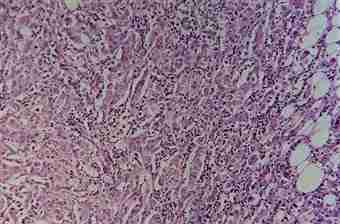After watching my mother and grandmother go through breast cancer, reading more than 80 books and countless research articles on the subject and then going through it myself, I have long felt that breast cancer is caused by more than one thing.
So I was really interested to read a recent article in the Huffington Post entitled “Breast Cancer is 10 Different Diseases Landmark Study Finds“.
Landmark British Study
The study was carried out by researchers from the University of Cambridge, Cancer Research UK, the University of Columbia, Canada and a number of other institutions worldwide. It was funded by Cancer Research UK, the British Columbia Cancer Foundation and the Canadian Breast Cancer Foundation and published in the scientific journal “Nature”.
The study examined variations in DNA in nearly 2,000 breast tumors in what was the largest such study of breast cancer tissue in the world, the culmination of decades of work.
The Familiar 4 Subgroups of Breast Cancer
The researchers decided that the term “breast cancer” should be an umbrella term for what appeared to them to be at least 10 quite different diseases. Up until now, breast cancer had been classified into four subgroups:
- Double positive cancers that had high levels of both estrogen and progesterone receptors on tumor cells
- Tumors that exhibit high levels of either ER or PR receptors
- Double negative cancers that had neither estrogen or progesterone receptors
- Tumors that exhibit high levels of HER2, a protein discovered in the 90’s that appears to drive breast cancer in some women
More Articles…
The Huffington Post article was rather disappointing to me because it did not list the other 6 new subgroups, leading me to search further afield.
Britain’s Daily Mail had the article as well and I got a few more tidbits of information:
- because further research was required, it would be 3-5 years before women with breast cancer would start reaping the benefits of more targeted treatments
- researchers were pleased because they were closer to their goal for women to receive tailor-made treatments specific to their particular type of breast cancer
- researchers hoped to speed up the search for more targeted therapy for triple negative breast cancer
The Daily Mail article said “The ‘exquisitely detailed’ analysis also revealed several new genes that drive the growth and spread of the disease. This opens the door for the development of drugs that counter their effects. Knowledge of the genetics of each type of the disease will also speed the development of drugs, allowing women to have treatments tailored to their tumor. A handful of such ‘wonder-drugs’, including Herceptin, are already in use.”
Still no mention of the other 6 subgroups.
Finally an Answer
I spent a few hours reading articles and finally found the very best one that described the 10 clusters or subgroups of breast cancer. Click here to read this terrific article, written by Henry Scowcroft of scienceblog.cancerresearchuk.org. It’s a long one, but worth reading. Scroll down the page to the paragraph titled “The ten clusters”. There’s no point in my describing the other 6 subgroups of breast cancer when he’s done such a beautiful job of it.
I loved the fact that the researchers were making it a priority to focus on the links between the immune system and cancer, something I’ve felt for a long time should be a primary focus when treating breast cancer.
I would also like to see research being done relating to how stress plays a part in the development of breast cancer. Nearly every single survivor I’ve spoken to has admitted to me that stress was a huge factor in their lives leading up to the discovery of their breast cancer. It was the same for me.
So – we’ll have to wait awhile for the results of this study and it won’t help the women going through breast cancer right now, but certainly future generations will reap the benefits.
One other question comes to mind – while I’m grateful to Britain’s researchers for doing this kind of work I do wonder why it’s so frequently British and Australian researchers that are making great strides in breast cancer. What the heck is going on in American research labs?
Resources:
http://www.huffingtonpost.co.uk/2012/04/19/breast-cancer-cancer-research-uk-disease-10-categories-dr-harpal-kumar_n_1436498.html?ref=uk#slide=831773
http://www.dailymail.co.uk/health/article-2131616/Breast-cancer-treatment-British-study-classifies-disease-10-different-types.html
http://www.nhs.uk/news/2012/04april/Pages/breast-cancer-genetic-diversity-mapped.aspx
If you’d like to stay connected, sign up for my free e-newsletters on the right, or “like” me on Facebook (MarnieClark.com) and I’ll do my utmost to keep you informed and empowered on your healing journey… and beyond.



